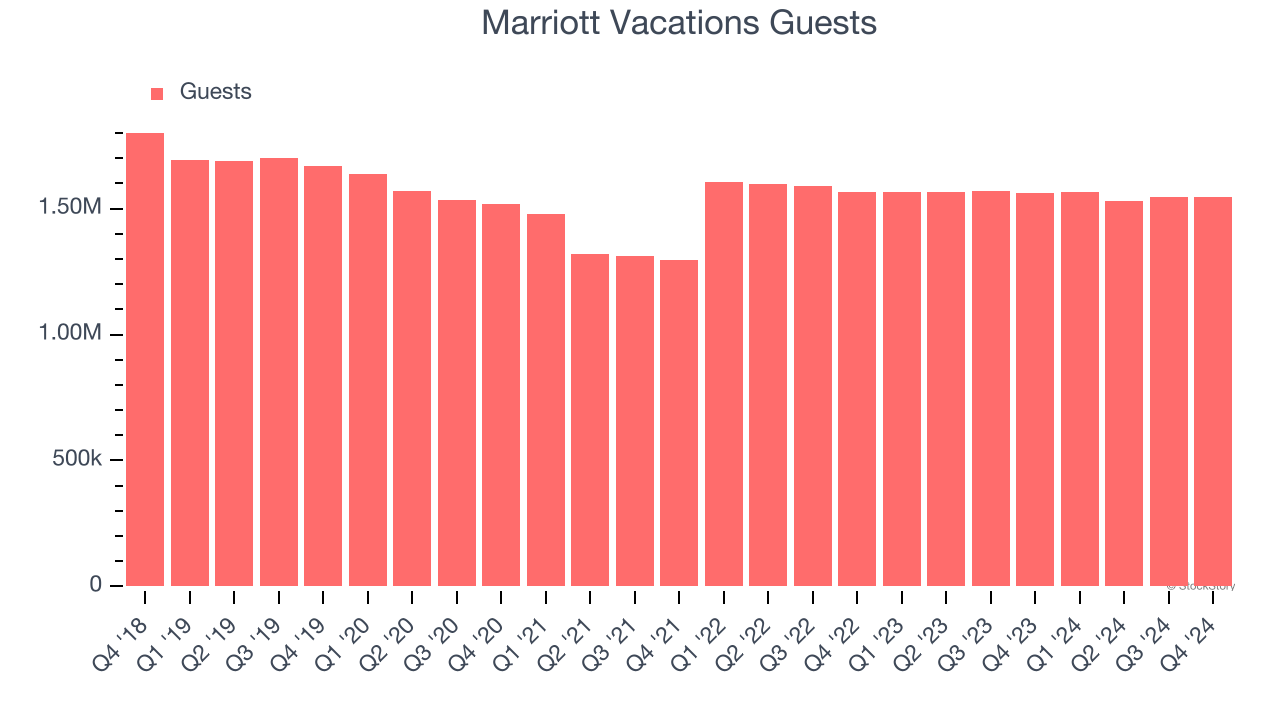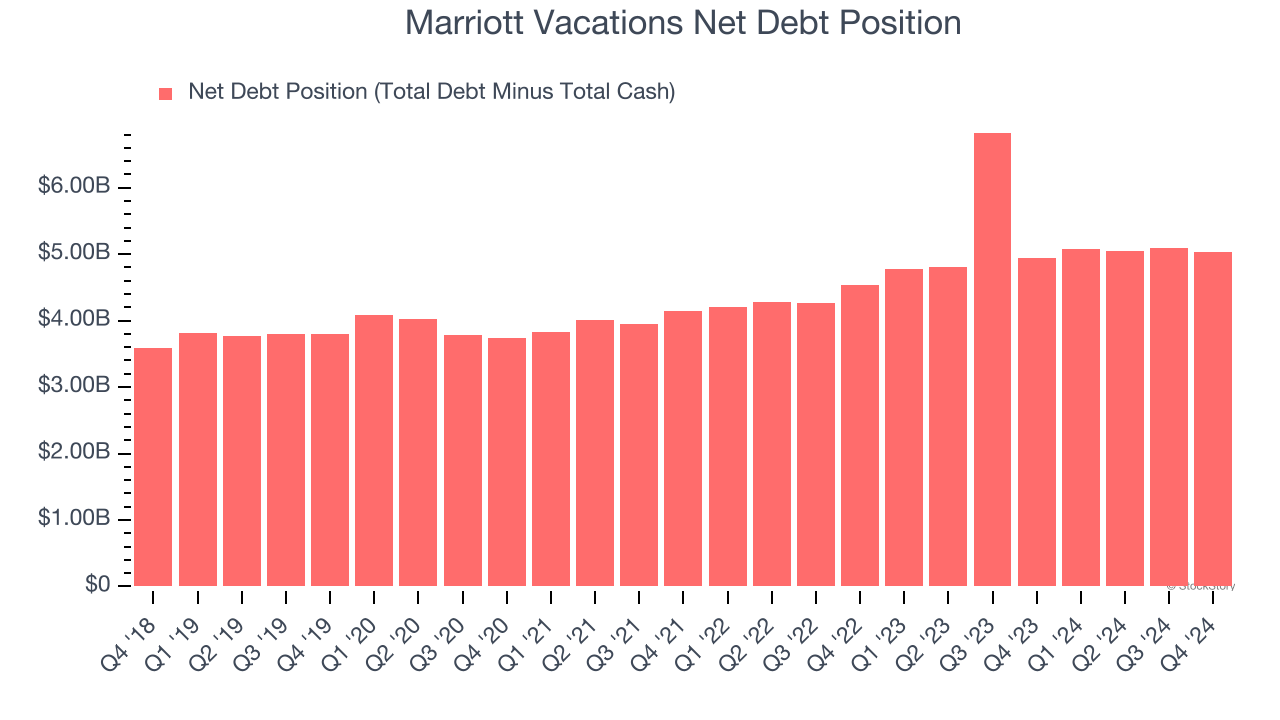
Shareholders of Marriott Vacations would probably like to forget the past six months even happened. The stock dropped 33% and now trades at $53.18. This might have investors contemplating their next move.
Is now the time to buy Marriott Vacations, or should you be careful about including it in your portfolio? Get the full stock story straight from our expert analysts, it’s free.
Even with the cheaper entry price, we're cautious about Marriott Vacations. Here are three reasons why you should be careful with VAC and a stock we'd rather own.
Why Do We Think Marriott Vacations Will Underperform?
Spun off from Marriott International in 1984, Marriott Vacations (NYSE:VAC) is a vacation company providing leisure experiences for travelers around the world.
1. Decline in Guests Points to Weak Demand
Revenue growth can be broken down into changes in price and volume (for companies like Marriott Vacations, our preferred volume metric is guests). While both are important, the latter is the most critical to analyze because prices have a ceiling.
Marriott Vacations’s guests came in at 1.55 million in the latest quarter, and over the last two years, averaged 1.4% year-on-year declines. This performance was underwhelming and implies there may be increasing competition or market saturation. It also suggests Marriott Vacations might have to lower prices or invest in product improvements to grow, factors that can hinder near-term profitability. 
2. Previous Growth Initiatives Haven’t Impressed
Growth gives us insight into a company’s long-term potential, but how capital-efficient was that growth? Enter ROIC, a metric showing how much operating profit a company generates relative to the money it has raised (debt and equity).
Marriott Vacations historically did a mediocre job investing in profitable growth initiatives. Its five-year average ROIC was 5%, somewhat low compared to the best consumer discretionary companies that consistently pump out 25%+.
3. High Debt Levels Increase Risk
Debt is a tool that can boost company returns but presents risks if used irresponsibly. As long-term investors, we aim to avoid companies taking excessive advantage of this instrument because it could lead to insolvency.
Marriott Vacations’s $5.23 billion of debt exceeds the $197 million of cash on its balance sheet. Furthermore, its 7× net-debt-to-EBITDA ratio (based on its EBITDA of $727 million over the last 12 months) shows the company is overleveraged.

At this level of debt, incremental borrowing becomes increasingly expensive and credit agencies could downgrade the company’s rating if profitability falls. Marriott Vacations could also be backed into a corner if the market turns unexpectedly – a situation we seek to avoid as investors in high-quality companies.
We hope Marriott Vacations can improve its balance sheet and remain cautious until it increases its profitability or pays down its debt.
Final Judgment
Marriott Vacations falls short of our quality standards. Following the recent decline, the stock trades at 7× forward price-to-earnings (or $53.18 per share). While this valuation is optically cheap, the potential downside is huge given its shaky fundamentals. There are more exciting stocks to buy at the moment. Let us point you toward an all-weather company that owns household favorite Taco Bell.
Stocks We Like More Than Marriott Vacations
The market surged in 2024 and reached record highs after Donald Trump’s presidential victory in November, but questions about new economic policies are adding much uncertainty for 2025.
While the crowd speculates what might happen next, we’re homing in on the companies that can succeed regardless of the political or macroeconomic environment. Put yourself in the driver’s seat and build a durable portfolio by checking out our Top 6 Stocks for this week. This is a curated list of our High Quality stocks that have generated a market-beating return of 175% over the last five years.
Stocks that made our list in 2019 include now familiar names such as Nvidia (+2,183% between December 2019 and December 2024) as well as under-the-radar businesses like Sterling Infrastructure (+1,096% five-year return). Find your next big winner with StockStory today for free.
